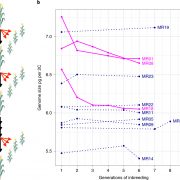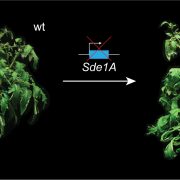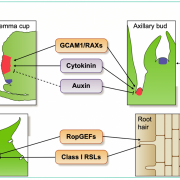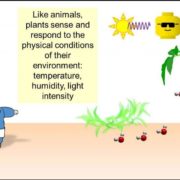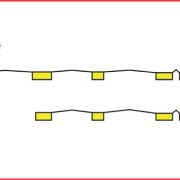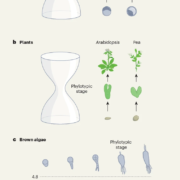Contribution of epigenetic variation to adaptation in Arabidopsis (Nature Comms)
 It is known that changes in the epigenetic state can be inherited, but whether the epigenetic changes are subject to natural selection is uncharted territory. Schmid et al. examined the phenomic and epigenomic changes in Arabidopsis accessions that underwent selection to simulated habitat fragmentation. Five generations of selection resulted in alterations of plants’ phenotype and decreased epigenetic diversity among the selected lines. The low level of genome methylation corresponded to slower growth and later flowering than the ancestral lines. In particular, the methylation and expression of At2g06002 (encoding a non-coding RNA) corresponded to the late flowering phenotype. While the mechanisms underlying the environmentally induced changes in epigenome are unclear, this study shows that the selection can lead to changes in the epigenetic status and can play a role in stably inherited adaptive changes in phenotype. (Summary by Magdalena Julkowska) Nature Comms. 10.1038/s41467-018-06932-5
It is known that changes in the epigenetic state can be inherited, but whether the epigenetic changes are subject to natural selection is uncharted territory. Schmid et al. examined the phenomic and epigenomic changes in Arabidopsis accessions that underwent selection to simulated habitat fragmentation. Five generations of selection resulted in alterations of plants’ phenotype and decreased epigenetic diversity among the selected lines. The low level of genome methylation corresponded to slower growth and later flowering than the ancestral lines. In particular, the methylation and expression of At2g06002 (encoding a non-coding RNA) corresponded to the late flowering phenotype. While the mechanisms underlying the environmentally induced changes in epigenome are unclear, this study shows that the selection can lead to changes in the epigenetic status and can play a role in stably inherited adaptive changes in phenotype. (Summary by Magdalena Julkowska) Nature Comms. 10.1038/s41467-018-06932-5


